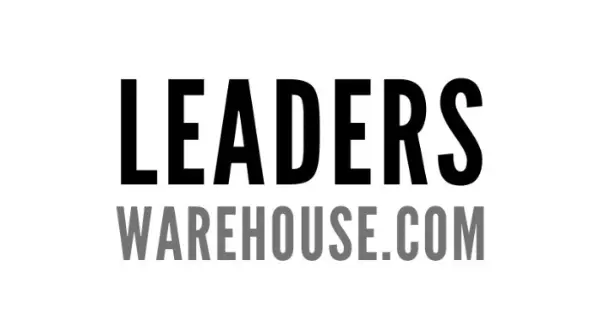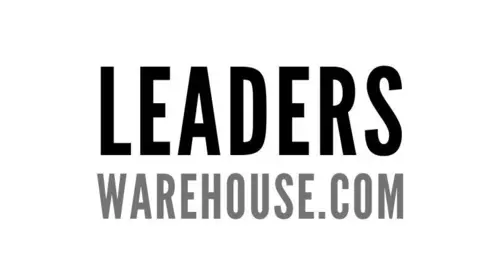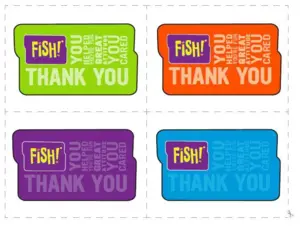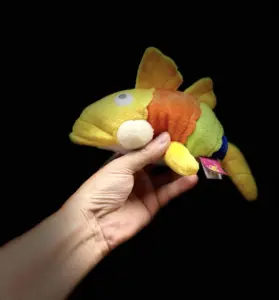A blog about leadership: How we became world champions in workjoy
Call for price
+45 71 92 55 63
Implementation of FISH! on the farm
The farm is a social pedagogical residence with room for 4 residents. Typically, residents are deaf, mentally retarded, mentally ill and can be unpredictable either by reacting or by being self-destructive.
Working on the farm can at times be very stressful and there is rarely a response from the residents. Despite this, the employees have a high level of professionalism and are happy with their work, but how can we give that part extra attention and how do we become aware of working with job satisfaction?
This is where FISH! is introduced …
What did we do?
Specifically, I set aside two hours for a staff meeting. I invited our supervisor Margrethe (who the staff knew and was confident about) to be in charge of the presentation of FISH!
The FISH! presentation was the only thing on the agenda. The rest should be a surprise.
For the meeting, Margrethe had done a lot to the room and the setting. At the meeting room door candles stood and signaled that something was different. Inside the meeting room we were greeted by fish in all sorts of shades: fishing mats on the floor, fishing bowls with fish licorice, teddy bear fish and a lot of fun toys. An incredibly colorful scene that sharpened curiosity.
The meeting began and Margrethe presented FISH! the concept and we started with ‘Make a FISH! status’, where we noticed that we were already doing many things that could be related to the four FISH! practices. An AHA experience, because we should not be introduced to something completely new and different, we should 'just' become more aware and do more of everything we already did - which gave us energy! Margrethe now asked the staff group if they would join? (freedom to choose!)… Exciting silence… and everyone around the table said YES!
A great starting point. The next step was to watch the film and here they both laughed out loud and had louts of new thoughts. The film became the starting point for an exciting discussion, where there was room to share all the things we already did, but also room for a common reflection. Consciousness was sharpened and boundaries pushed. For example, there were employees who had difficulty with bun baking developing into a game with flour, who now suddenly saw this game in a different perspective and as a proven purposeful action. Or the colleague who had a hard time having a resident kiss the window when the staff were outside - suddenly she shifted from seeing it as an annoyance over greasy windows, to a game where the consideration of the resident was in focus! Or the colleague who got the AHA experience of ‘Choose Your Attitude’. I do not have a choice in relation to attending work, but I have a choice in relation to the attitude I encounter at work!
The next item on the agenda was for everyone to decide if they wanted to FISH! and make a commitment on a very specific thing they could take action on, in relation to making the 4 principles clearer.
One chose every day for a month to write in the calendar 'Choose your attitude'.
Another would sow summer flowers in the garden.
One would sew hand puppets of old socks and buttons.
One would make modeling wax to inspire new play.
One would buy costumes - crazy hats, clown noses, etc.
One would buy a book in which we could write the good stories from everyday life.
One would buy cardboard so that we could make our commitments visible on a poster - it turned out that we write our commitments on small light blue clouds, which we stick on a blue poster and the clouds are replaced as new commitments are made.
We wanted FISH! visible in our institution, both to be reminded of it and to make our guests curious - so we made our very own poster with the 4 practices.
Last but not least, we made an agreement that at every staff meeting there should be a point where we should share the good stories.
How does it work?
After 10 months, we are still well underway and happy with the concept. We are constantly replacing the small light blue clouds and we still have our FISH! poster hanging on the kitchen door to be visually reminded of it.
Play
We have purchased toys such as glowing eyes, soft balls and stuffed animals, which we use purposefully in play. For example, an employee has good experiences with communicating to a psychotic resident via a small bat teddy bear and another can easily be a little clumsy and 'lose' the bright eyes on the floor, so everyone has to crawl around with their butt in the air and help get them picked up again. All toys are visible in our living room. Otherwise, we play with the things that are at hand… pillow fight, flour, a water spray and use ourselves. For example, it is very contagious if we laugh together and provoke 'laugh flip'. Play has become a conscious part of our everyday lives and play has become a targeted educational tool. Through this we have become even better at generating ideas together and we have become really good at playing with and connecting to each other's initiatives and ideas. We have the will and courage to experiment. There is room for diversity and great acceptance that we can do lots of stuff in new ways.
Make their day
There is clearly a professional satisfaction in making a difference for our residents and making them happy, we meet their initiatives, jump on their ideas and make every day a play. Who says it has to be boring to clean the room? With loud music and dancing with the vacuum cleaner, it becomes play. Who says cooking has to be boring? When you can juggle different ingredients. Who says it must be boring to eat dinner? When every day can be turned into a party with tablecloths, napkins, candles, water on empty wine bottles and staff in a black jacket as a waiter.
It was a great success the day a resident got a dance with the head waiter before she left the ‘Restaurant Dining Table’ (believe me - it's not just fun for the residents!).
But now it's not all about the residents, because 'Make them happy' can also be related to colleagues. We have picked up a stack of free postcards at the cafes and they are frequently used among the staff.
When you show up for work and find an appreciative postcard in your dovecote… you get happy. When colleagues not only notice but also comment on the good things you do… you become happy.
When the colleague says 'Thank you for today' or 'Thank you for a nice shift'… you will be happy.
Be there
In our relationship, there is only you and me in the whole world. This applies regardless of whether we are with a resident about putting laundry together or we have a professional discussion with a colleague. We see each other, listen to each other and the respect for each other's differences has become visible. We practice being present in the now.
Choose your attitude
This principle has become an integral part of our daily language use. These 3 little words say infinitely much and everyone knows what they mean. It may be the morning when the colleague shows up and everything at home has been hopeless - the children went backwards, the man did not understand anything and the dog had peed in the living room. Be present, listen and then ask ‘have you chosen your position?’ - a simple way to help the colleague and prevent the awful morning from spreading to the work day.
But also in relation to professional tasks, it can be helpful if you are asked if you have chosen your position. An example might be when a new initiative had to be implemented and an employee had a lot of resistance, so only all the problems, etc. When she was asked if she had chosen her position, it turned out that it was actually her belief. It would fail. With that conviction, it was doomed to let her be the prime mover on the project and now we could act on it.
In the process, we have become very aware of our own and each other's attitudes.
What have we learned?
We have learned that things take time and that it is important to take small steps forward.
We have learned that it is important that everyone is involved and feels ownership - exactly why the staff twice during the introductory meeting were asked if they would FISH!
We have learned that it is important to have the same 'headlines' to act on.
We have learned to accept each other and see it as a gain that we are different.
We have learned that cooperation and job satisfaction require willpower and courage.
We have learned that the positive stories need to come to light. It gives energy to share them.
We have learned that we can play more and use the game purposefully in the pedagogical practice.
We have learned to make our colleagues happy - to do something extra or unexpected.
We have learned to be present. Being greeted with presence makes a difference.
We have learned that our attitude is crucial to ourselves, our colleagues and our residents.
What has all this done to our job satisfaction?
We left the introductory meeting with a handshake that we wanted to be world champions in job satisfaction. Becoming a world champion requires a huge effort on the part of the individual. It requires many hours of intensive training and it requires support from the environment… and it requires time.
This is written 10 months after the introduction and we are really well on our way, we are convinced that FISH! the principles were exactly the headlines we needed in order for us to gain greater shared awareness and work more purposefully with the job satisfaction concept.
Every single employee knows the principles and works consciously with them in everyday life. We train intensively both individually and together. We have super support from each other. The relatives and our partners and we have the time for us… so it is quite certain that we will reach our goal and become world champions (at some point).
Written by Marianne Hvilsom, Head of Department
Aalborg for the Deaf
The Farm, Sigsgaardsvej 19, Kongerslev
Phone: 99 31 77 23
There is no reviews yet. Be the first to write us your opinion








